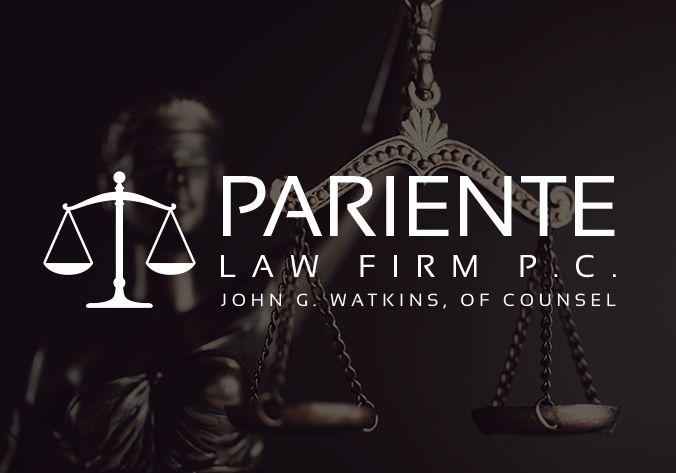
Las Vegas Shoplifting Attorney
Shoplifting is seriously punished in Nevada, and if the retail price of the item or items is above $649.99, you will be facing felony charges. If you have certain prior convictions, you can even be charged with burglary.
Even if you are never convicted of shoplifting, the retailer can sue you in civil court for the price of the item plus costs and fees. Many retailers do this on a regular basis, and then turn it over to collection agencies or “law firms.” When this happens, you can get obnoxious and harassing calls and letters demanding payment of money, often much more than the cost of the item they claim you shoplifted.
Shoplifting Defense in Nevada
If you have been arrested and charged with shoplifting, or have received a letter or phone call claiming you will be held responsible for a shoplifting incident, you are in need of the expertise of a dedicated and knowledgeable defense attorney.
Michael Pariente devotedly defends clients in Clark County, Las Vegas, Sunrise Valley, Henderson, and Paradise, who have been charged with shoplifting. Call Michael Pariente of Pariente Law Firm, P.C. today at (702) 966-5310 and let him get started on exploring your legal options for defense.
Shoplifting in Nevada
Shoplifting may be charged under a number of different sections of the Nevada Revised Statutes. The most common is a form of larceny, depending on the price of the item or items shoplifted. NRS 205.251(1) states that the value of property involved in a larceny offense such as shoplifting shall be deemed to be the highest value attributable to the property by any reasonable standard, so the level of the crime you are charged with will depend on the full retail price of the item even if it was on sale at the time or you had a coupon.
You can be charged with larceny even if you had not yet left the store or gone past the checkout counter when you were stopped by store security. You can also be charged with larceny for such actions as switching price tags or putting an expensive item in a container for a less expensive item.
If the price of the item or items was under $650, you can be charged with petit larceny under NRS 204.240. This is a misdemeanor, and conviction may result in:
- Up to six months in jail;
- Up to $1,000 fine;
- Restitution; and/or
- Community service.
If the price of the item or items was at least $650 but under $3,500, you can be charged with grand larceny as a category C felony under NRS 205.220 and NRS 205.222. Conviction will result in:
- Minimum of one year up to 5 years in prison;
- $10,000 fine; and/or
- Restitution.
If the price of the item or items was $3,500 or more, you can be charged with grand larceny as a category B felony under NRS 205.220 and NRS 205.222. Conviction will result in:
- Minimum of one year up to 10 years in prison;
- $10,000 fine; and/or
- Restitution.
You can even be charged with burglary for shoplifting in Nevada. Unlike burglary laws in many other states, Nevada’s burglary law NRS 205.060 does not specify that entry must be unauthorized, a “burglary” only means that a person entered into a shop or other building with the intent to commit larceny or obtain property by false pretenses . Burglary is a category B felony, and conviction will result in:
- Minimum of one year up to 10 years in prison, with no chance of probation if you have a prior conviction; and/or
- $10,000 fine.
If you have or obtain a gun or other deadly weapon during the incident, the prison sentence increases to a range of 2-15 years.
In 2013, the law was changed to make it harder to charge someone with burglary for shoplifting, but you can still be charged with burglary for shoplifting if you have been convicted two or more times for committing petit larceny within the immediately preceding 7 years or of a felony at any time in your life.
Detention Powers of Accused Shoplifters by Loss Prevention and other Store Employees
Nevada law grants businesses and their employees the right to detain shoplifters. NRS 597.850(3) states that if a business or employee has reason to believe that merchandise is being shoplifted and that they can recover the shoplifted merchandise by taking the person into custody and detaining the person, they may for the purpose of attempting to recover the shoplifted merchandise, or for the purpose of informing a police officer of the shoplifting, take the accused shoplifter into custody and detain the accused shoplifter at the store in a reasonable manner and for a reasonable length of time.
A merchant or employee is presumed to have reason to believe that merchandise is being shoplifted by a person and that the merchant can recover the shoplifted merchandise by taking the person into custody and detaining the person if the merchant or employee observed the person concealing merchandise while on the premises.
Such taking into custody and detention by a merchant or employee does not render the merchant or employee criminally or civilly liable for false arrest, false imprisonment, slander or unlawful detention of the accused shoplifter unless the taking into custody and detention are unreasonable under all the circumstances. In most circumstances, courts will regard it as reasonable for store security, loss prevention officers, or other store employees to take an accused shoplifter into custody.
Civil Lawsuits and Demand Letters
NRS 597.860 states that shoplifters can be sued and forced to pay for the retail value of the merchandise, plus damages of not less than $100 nor more than $250, costs of the lawsuit and reasonable attorney’s fees. You may be sued even if you were never convicted of any crime related to the accusation of shoplifting. NRS?597.870 makes parents and legal guardians liable if their child is accused of shoplifting.
Unfortunately, these laws are often abused by retailers. Many businesses have have established a practice of collecting all the personal information they can get from anyone accused of shoplifting, then turning this information over to a collection agency. The collection agency, which typically operates under the name of a “law firm,” then sends you form letters threatening to sue you if you do not pay them, and then follows this up with obnoxious phone calls demanding you pay them.
Often, the amount demanded by the collection agency is far more than the price of the item allegedly shoplifted, due to the assortment of fees they add in. While the law firms or collection agencies sending the letters do not always actually end up filing a lawsuit against you, the phone calls and letters can still cause you a lot of unnecessary stress.
If you have been getting threatening, annoying or harassing phone calls or letters demanding money after being accused of shoplifting, an experienced Clark County shoplifting lawyer can help you fight back against the collection agency or “law firm” that is making life difficult for you.
Defenses to Shoplifting Accusations in Nevada
Some defenses may be available to you if you are accused of shoplifting. The prosecution must demonstrate that you intended to steal the item. If you were just arranging the item in a way to make it easier to carry, or accidentally walked out with an item that you did not intend to steal, you should not be convicted of shoplifting.
Sometimes store employees make mistakes, and accuse you of shoplifting items you already own or paid for. Receipts or other evidence of ownership should be saved if you are accused of shoplifting.
Finding the Best Shoplifting Defense Attorney in Clark County, Nevada
Michael Pariente of Pariente Law Firm, P.C. is a former prosecutor who is now focuses exclusively on defending clients who have been charged with crimes in the areas in and around Las Vegas. If you have been accused of shoplifting, do not hesitate to contact our firm.

Read Our Case Results
-
 Casino Marker
Casino Marker -
 Casino Marker
Casino Marker -
 Battery Constituting Domestic Violence
Battery Constituting Domestic Violence -
 Battery and Domestic Violence
Battery and Domestic Violence -
 Attempted Murder, Kidnapping, Burglary, and Battery
Attempted Murder, Kidnapping, Burglary, and Battery


